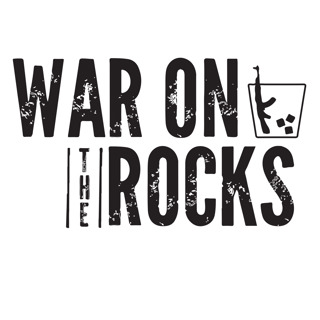
Congressman Himes on Venezuela, Latin America & a Disordered World
As ranking member of the House Permanent Select Committee on Intelligence, Rep. Jim Himes of Connecticut has deep insights into national security. And he is concerned. He joined Ryan to share his thoughts on strikes on drug boats, the Trump administration's foreign policy in Latin America, the way the administration fails to work with Congress on matters of national security, and strategy in other parts of the world, including Europe, the Middle East, and East Asia.
30 Okt 43min

How the Army Wants to Counter Drones
Army Chief Technology Officer Alex Miller joined Ryan at a live event to talk about what countering improvised explosive devices taught him about defeating drones, what the Army is learning from the southern border about emerging threats, and what he wants to see from industry. He makes the case for deeper collaboration between companies, sharper focus, and the courage to shut down what no longer works.
28 Okt 21min

Holding Ground: Ukraine, Russia, and the Politics of Persistence
Michael Kofman and Dara Massicot join Ryan to discuss the state of the front, how Ukraine and Russia are staying in the fight, the possible provision of Tomahawk Land Attack Missiles, contingencies expected and unexpected, the failures of Russian diplomacy, and what the most important developments of the year so far have been.
15 Okt 37min

Is Europe Stepping Up on Defense?
Well, is it? From defense innovation, to scaling capabilities, to budgets, the answers aren't easy. Ryan was joined by General Sir Richard Barrons of the United Kingdom and Peter Michael Nielsen of Denmark to sort through these issues. Barrons had a storied military career and most recently co-led his country's Strategic Defence Review. Nielsen is Denmark's deputy national armaments director, a role that has unique weight now as Denmark holds the E.U. presidency. This episode was recorded live at a reception in London hosted by our friends at Helsing (https://helsing.ai).
2 Okt 21min

Cogs of War: Moving at the Speed of War with Horacio Rozanski of Booz Allen
The future fight won't be won by those with the biggest budgets, most polished strategies, or largest armies. It will be won by those who can translate breakthrough technology into usable capability at speed and scale. Ryan was joined by Horacio Rozanski, the CEO of Booz Allen, to talk about the role his company is playing in this race. Having reoriented Booz Allen into a technology integrator, he shares the cultural and organizational challenges of turning Booz Allen into a company of builders, the bets being made on emerging technologies, and how his personal journey — from immigrant to Booz Allen intern to CEO — shapes how he sees change. This is a special cross-posted episode of Cogs of War, our show on defense tech and industry. Click here to subscribe using your podcast app of choice: https://pod.link/1818133762
26 Aug 48min

From Alaska to the White House to the Battlefields of Ukraine
In the wake of summits in Alaska and Washington, the war in Ukraine has become as much about competing diplomatic positions as it is about hard realities on the front. Ryan sat down with Dara Massicot and Mike Kofman to discuss what Putin really walked away with, how European leaders are trying to shore up Kyiv's position, and whether the conversation over security guarantees could reshape the balance of the conflict. Along the way, they dig into the debate over territorial concessions, battlefield attrition, and what all of this means for Ukraine's ability to endure. This episode is supported by Legion. Trusted by special operators and the Defense Department, Legion builds secure, agentic AI for the most sensitive environments — on local servers, in isolated networks, or in government clouds — without ever training on customer data. Learn more at: https://warontherocks.com/legion
22 Aug 35min

The Chip That Crossed the Line? NVIDIA, China, and the Great Power Tech Race
We're diving into a major development at the intersection of tech, trade, and national security: the U.S. government's decision to allow NVIDIA's H20 chips back into the Chinese market. Brad Carson (former defense official and member of Congress) of Americans for Responsible Innovation and Liza Tobin (former CIA and National Security Council staffer) of Garnaut Global join Ryan to explore what this reversal says about America's approach to protecting its tech edge, whether NVIDIA's justifications hold water, why normal Americans should care about this, and what it could mean for the future of AI and semiconductor strategy. This episode also features a short clip from our new, free show, Cogs of War. You can listen to this exciting new show on defense tech and industrial issues on your podcast app of choice.
14 Aug 30min

Forging Minds for Future Wars
In a time of rapid change and global danger, how should the warriors of the future be educated? Ryan sat down with Vice Adm. Peter Garvin, president of the National Defense University, to tackle this question — one that cuts to the core of American military power. Garvin offers a frank assessment of how professional military education needs to evolve to prepare leaders for a world defined by great-power rivalry, disruptive technologies (including and especially AI), and dynamic battlefields.
7 Aug 28min






















